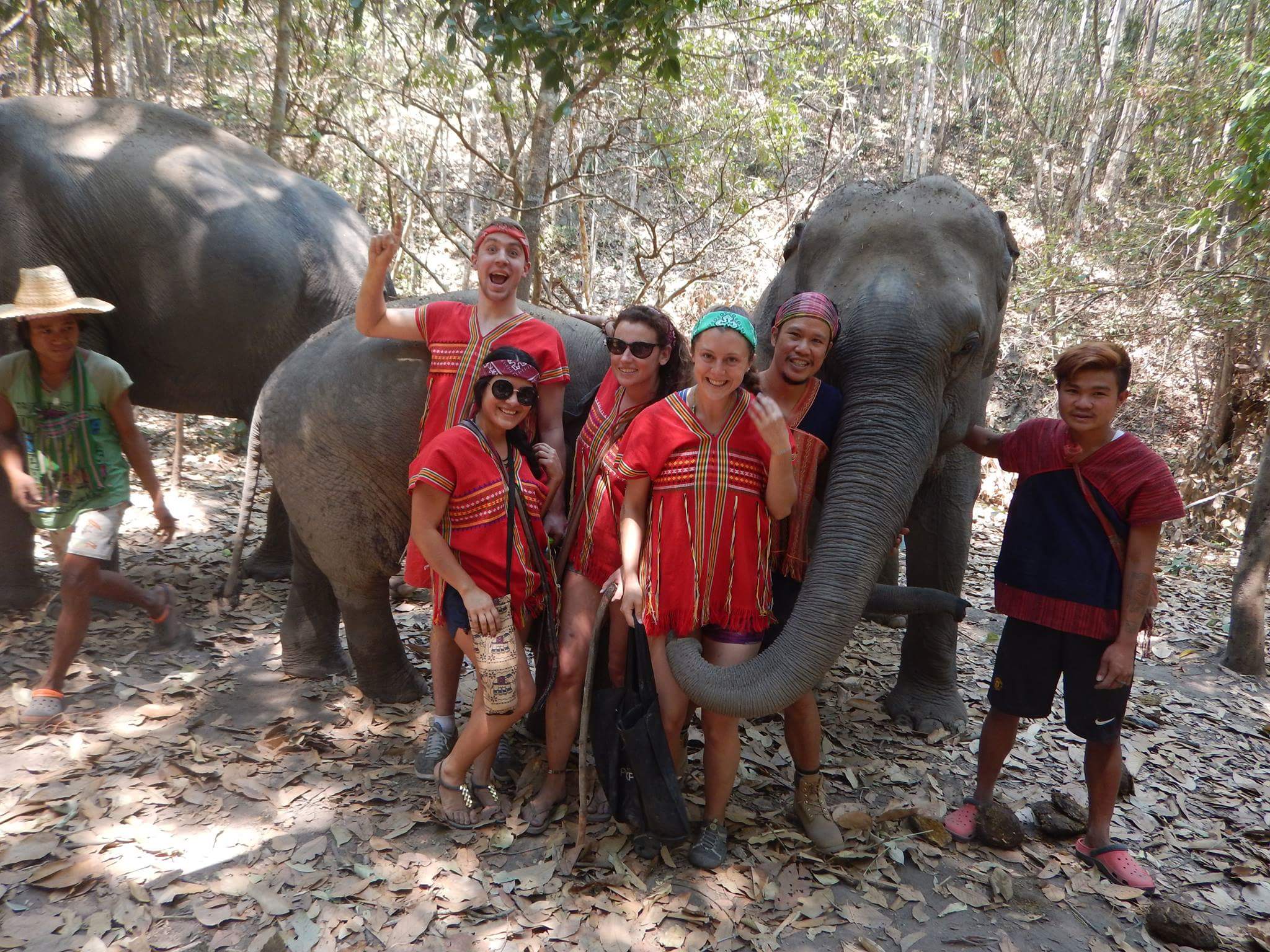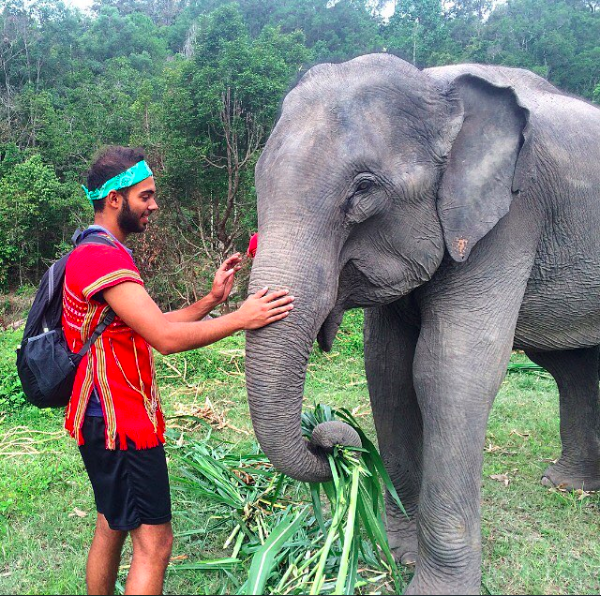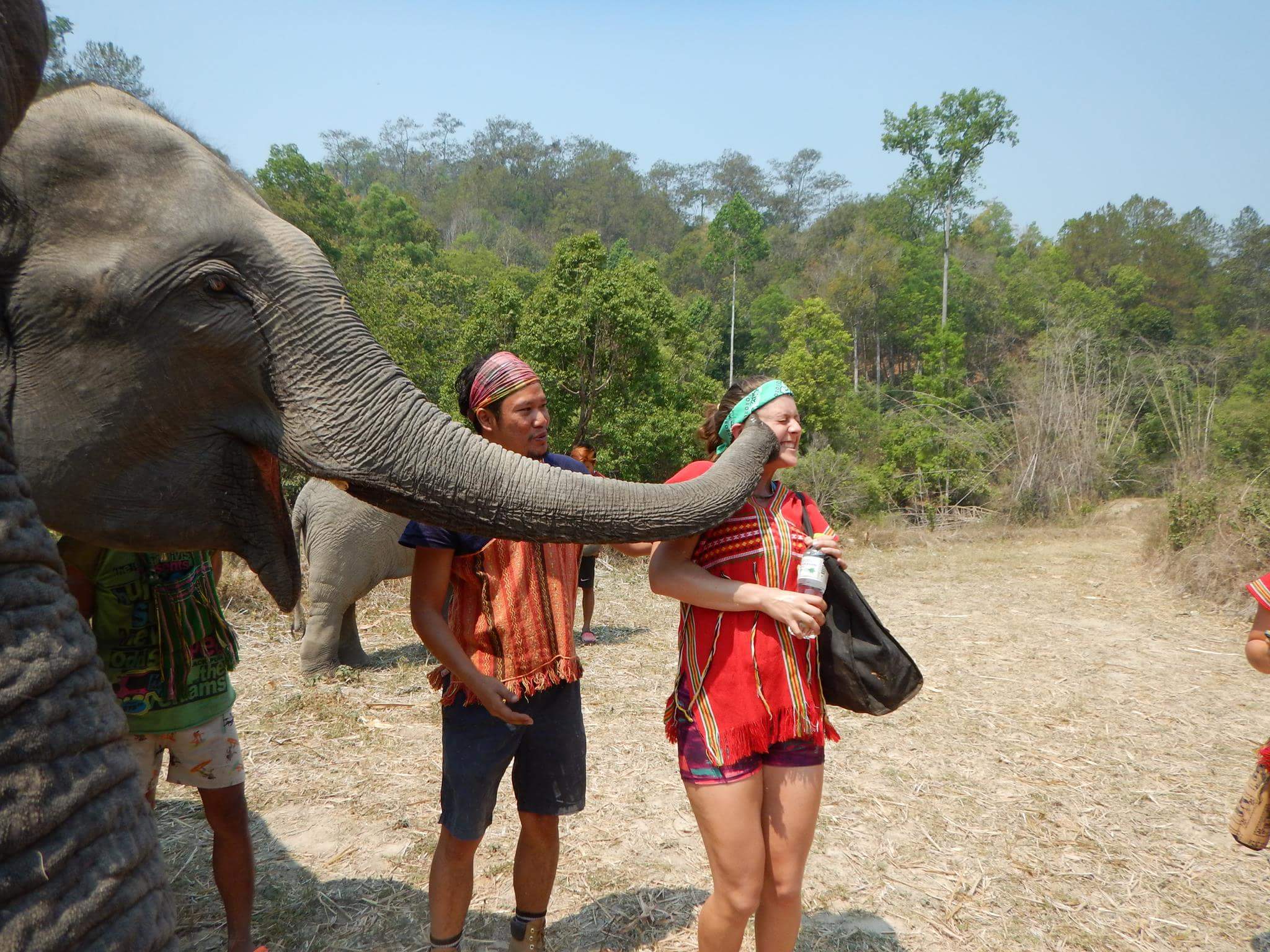“We control the elephants by heart. Into The Wild will rescue and warmly welcome more elephants into the camp.”
It’s been a century since 100,000 elephants roamed the forest lands of Thailand. Once a common sight throughout Asia and Africa, the biggest mammal on earth is now classified as an endangered species. Elephants have become the victims of illegal poaching and ivory trading, however, there is another factor that is contributing to their extinction: tourism.
Elephant rides have long since been offered to tourists visiting African and Asian countries. Despite an abundance of media coverage about the dark side of elephant tourism, many people are still unaware – or uncaring – about the practice. I, too, used to be one of those oblivious tourists just three years ago. I was giddy with excitement at the prospect of riding an elephant – until I noticed its horrifically disheveled ears, shredded by the manhout’s (elephant handler) brutal stabbing with a bull hook.
There are now less than 5,000 elephants left in Thailand, with roughly 4,000 being held captive. In 2015, an animal welfare bill was introduced in Thailand, however, it has had little effect on the situation on the ground in regards to elephant tourism. Luckily, a number of NGOs and individuals have stepped up to take matters into their own hands. One inspiring example is Siwawut Munesan, who runs the Into The Wild Elephant Camp.
Into The Wild: The solution to elephant tourism
Into The Wild focuses in rescuing elephants from the tourism industry and offers tourists an elephant-friendly wildlife option, which sees them interact with the animals in their natural habitat.
Siwawut, 34, said that during his teenage years, his family used to have their own elephants – but they eventually let them go free. He told the IPF how he was disappointed to see the state of the elephant tourism industry today.
“Today, I am seeing that elephants are used for commercial purposes and trail work as well as people to ride them again and again. So now I have firm intentions to bring the elephants’ freedom back just like the old days when they used to be free like a bird.”

A group of tourists having fun with the elephants and caretakers of the sanctuary. [Image credit: Into The Wild Sanctuary]
A personal connection with the elephants
Indeed, all three elephants at Into The Wild Elephant Camp are treated well in line with Siwawut’s philosophy. He spoke fondly about them, describing them as though they were his own children.
“The most mature elephant’s name is Maenoi. She has already given birth to two baby elephants. She is very sensitive and fearful about nature, but is always loving, caring and affectionate towards the baby elephants.
“The wittiest and cleverest elephant’s name is Maedee. She is the mother of a baby elephant named Phim. Maedee is 22 years old and has lots of special attributes such as greeting visitors, blowing hooligan instrument and kicking a soccer ball.
“The most adorable baby elephant, of course, is Phim. The two-year-old baby elephant is the rock star at our camp as he likes to play with people and loves swimming and playing with mud.”
Experience elephants in their natural habitat
Siwawut named his elephant camp Into The Wild because he wants tourists to learn about the forest environment and observe the elephants in their natural habitat.
Besides supporting the elephants, the small camp also supports the hill tribe’s people by teaching them the conservation procedure on how to take proper care of the elephants.
“We hope the tourists will be able to gain knowledge regarding how to take good care of and feel affections for the elephants.”
Siwawut continued: “We control the elephants by heart. Into The Wild will rescue and warmly welcome more elephants into the camp. We will give our best efforts to rescue and help all those elephants that have been working extremely hard to satisfy the unethical way of tourists riding it. We will bring them to greenery grass with natural environment of our Into The Wild Elephant Camp.”
Government response to the problem
While Thailand’s law hasn’t been updated to combat elephant tourism, Siwawut said that the government has taken note of the conservation process and made it one of their priorities.
“The Thai government had already prepared the conservation procedure before they even laid down the law by banning people from taking elephants for a ride on the streets for personal or commercial use,” Siwawut explained. However, he noted this had little impact on the actual situation. The government is now trying to bring in new laws to further tackle elephant tourism in Thailand.
“The law didn’t actually have any impact on rescuing and helping elephants.”
While the Thai government passed laws to curb wildlife trafficking, a loophole allowed elephant calves to be taken into the wild and then laundered into the illegal wildlife trade. Calves are registered only when they become eight years old, which allows poachers to capture young elephants and sell them to dealers who register them as being “captive bred”. Siwawut has an idea as to how this problem can be tackled:
“The government and different NGOs [working with] elephant welfare should create an elephants’ welfare law regarding elephant rights and maintenance of the camps in Thailand, so that every elephant camp follows the same guidelines.”



